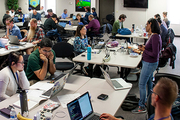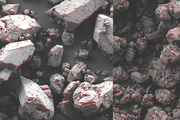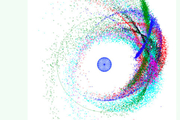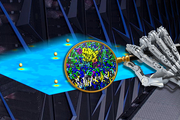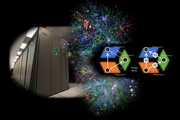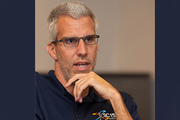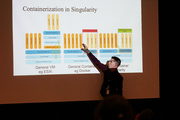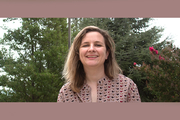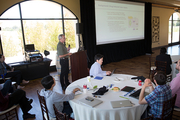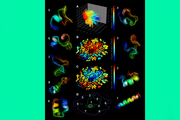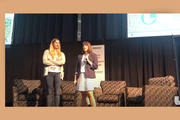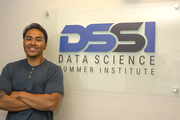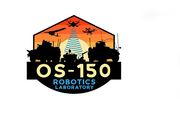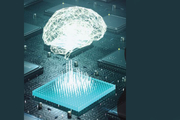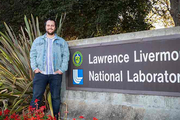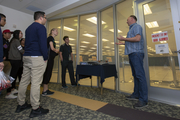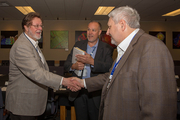Did you know we have a monthly newsletter? View past volumes and subscribe.
DSI sponsors LLNL hackathon
Feb. 18, 2020 -
Since 2012, Lawrence Livermore National Laboratory’s (LLNL’s) Computing directorate has held hackathons three times a year. These spring, summer, and fall events are scheduled over 24 hours and invite software teams to work on new ideas, programming languages, open-source tools, or project tasks. Exploration and experimentation are highly encouraged, and “It’s OK to fail” is the event mantra...
Machine learning accelerates high-performance materials development
Feb. 13, 2020 -
Lawrence Livermore National Laboratory (LLNL) and its partners rely on timely development and deployment of diverse materials to support a variety of national security missions. However, materials development and deployment can take many years from initial discovery of a new material to deployment at scale. Now, an interdisciplinary team of LLNL researchers from the Physical and Life Sciences...
Department of Energy researchers share data management strategies at first-ever “Data Day”
Nov. 11, 2019 -
It’s become something of a mantra of the digital age: Data is the new currency. Especially in science, where it’s hard to find a single project that doesn’t involve generating or consuming massive amounts of data.
In light of the growing awareness of the critical importance of data management across the Department of Energy complex, more than 100 researchers from DOE national laboratories...
Big data illuminates the physical sciences
Nov. 6, 2019 -
Livermore teams are applying innovative data analysis and interpretation techniques to advance fundamental science research. This article describes projects in astrophysics and materials science. Read more at Science & Technology Review.
Lab leads effort to model proteins tied to cancer
Oct. 31, 2019 -
Computational scientists, biophysicists and statisticians from LLNL and Los Alamos National Laboratory(LANL) are leading a massive multi-institutional collaboration that has developed a machine learning-based simulation for next-generation supercomputers capable of modeling protein interactions and mutations that play a role in many forms of cancer. Read more at LLNL News.
LLNL team achieves largest graph analytics to date
Oct. 28, 2019 -
Besides broad usage in the tech industry, graph analytics also have national security applications, where algorithms dig through massive datasets to find anomalies or patterns of nefarious activity. It’s in that vein that an LLNL team of computer scientists and applied mathematicians, including Roger Pearce, Geoffrey Sanders, postdoc Benjamin Priest and visiting scholar Trevor Steil, searched...
FedTech helps accelerate technology transfer
Oct. 4, 2019 -
LLNL computer scientists with promising technologies have taken part in a national organization’s commercialization program that pairs researchers with entrepreneurs. One of the researchers, Timo Bremer (who also sits on the DSI Council), worked for 12 weeks with teams of entrepreneurs, comprised of former CEO’s, executives, graduates and students with master’s degrees in business and others...
Learning about learning: reading group discusses advancements in AI
Oct. 2, 2019 -
Teams from around Lawrence Livermore conduct research using artificial intelligence, and the Data Science Institute’s (DSI’s) Machine Learning Reading Group serves as a resource for employees to keep one another apprised of developments in this ever-changing field.
The group meets weekly to share and discuss new literature on machine learning and deep learning, subsets of artificial...
Cindy Gonzales forges a new career in data science
Sept. 25, 2019 -
Through LLNL’s Data Science Immersion Program, Gonzales is now among the Lab’s newest data scientists. For two and a half years, she juggled a demanding workload—coordinating Computing’s Scholar Program, interning with data scientists, learning from mentors, supporting LLNL’s Data Science Institute, and attending college part time—while also having her first child. Read more at LLNL Computing...
Collaboration drives data science workshop
Sept. 12, 2019 -
Lawrence Livermore National Laboratory’s (LLNL’s) Data Science Institute (DSI) hosted its second annual workshop on July 23–24, 2019. Co-sponsored by the University of California (UC) system, the event drew more than 200 participants to Garré Winery in Livermore. A common theme ran throughout both days: Collaboration is always welcome.
Indeed, feedback from last year’s workshop inspired a...
Energy Department, Weill Foundation sign MOU to advance AI for biomedicine, health research
Aug. 27, 2019 -
U.S. Secretary of Energy Rick Perry and Sandy Weill, founder of the Weill Family Foundation, signed a memorandum of understanding (MOU) to formally initiate a public-private partnership for artificial intelligence (AI), neurological disorders and related subjects. The MOU will foster collaboration to demonstrate AI-based research breakthroughs that span from basic science focused on a better...
CANDLE illuminates new pathways in fight against cancer
Aug. 16, 2019 -
As part of the Department of Energy’s role in the fight against cancer, scientists are building tools that use supercomputers to solve problems in entirely new ways. Cancer research provides a complex deep learning challenge that enables DOE to develop new supercomputing capabilities that will, in turn, help scientists address challenges in national security and science. The CANcer...
LLNL presentation at KDD Conference women’s luncheon (VIDEO)
Aug. 15, 2019 -
The DSI co-sponsored the women's lunch at the 2019 Conference on Knowledge Discovery and Data Mining. Alyson Fox and Amanda Minnich discussed LLNL's diversity and inclusion efforts. Watch on LLNL's YouTube channel.
Livermore Lab Foundation awards scholarship to Cal State East Bay computer science student
Aug. 2, 2019 -
Alan Noun, a computer science student at Cal State University East Bay and the recipient of the Livermore Lab Foundation's first full-year scholarship, has started a summer internship at LLNL. In partnership with Cal State University East Bay (CSUEB), the Livermore Lab Foundation (LLF) awarded Noun a one-year stipend to allow him to devote more time to academics by reducing work he needs to...
New open-air facility will be testing ground for autonomous drones, vehicles and robots
July 25, 2019 -
LLNL’s new OS-150 Robotics Laboratory is an outdoor, 8,000 square-foot enclosure that will serve as a proving ground for the autonomous drones, vehicles and robots of the future. Informally known as the "drone pen," the 50-foot-tall rectangular enclosure, located directly across from one of the Lab’s main engineering buildings, is allowing operators to pilot their drones safely and...
LLNL Center for Applied Scientific Computing: accelerating scientific discovery (VIDEO)
July 12, 2019 -
The Center for Applied Scientific Computing (CASC) serves as LLNL’s window to the broader computer science, computational physics, applied mathematics, and data science research communities. Major thrust areas in CASC research include: (1) Increasing simulation fidelity by integrating multi-physics and multi-scale models, increasing resolution through advanced numerical methods and more...
Small brain-on-a-chip promises big payoffs
July 10, 2019 -
Livermore’s brain-on-a-chip may offer a faster, less expensive, and more effective way to evaluate the organ’s response to human-made and natural threats. The device is the newest embodiment of an integrated system designed to accurately evaluate the effects of potentially harmful chemicals, viruses, and drugs on humans without relying on animal or human test subjects. Computational models...
Protecting image classification in artificial intelligence
July 8, 2019 -
To address vulnerability concerns in image classification, a new subfield of machine learning has emerged called adversarial machine learning, which focuses on the security of machine learning algorithms. Thomas Hogan, a doctoral student of mathematics at UC Davis, spent his summer investigating this new area of research during the National Science Foundation’s Mathematical Sciences Graduate...
Two-week workshop lets UC Merced students step into shoes of Lab computer scientists
June 12, 2019 -
From May 20-31, 21 undergraduate and graduate students, many of them first-generation college students, interned at the Lab. While they were on site, the students, along with their Lab mentors, were tasked with using machine learning and other computational methods to tackle real-world problems in computational immunology. Read more at LLNL News.
NFL comes to Lab to hear latest on TBI research
June 5, 2019 -
Officials from the National Football League visited LLNL to hear how the Department of Energy’s national laboratories are using high-performance computing and artificial intelligence to advance scientific understanding of traumatic brain injury (TBI). Read more at LLNL News.

